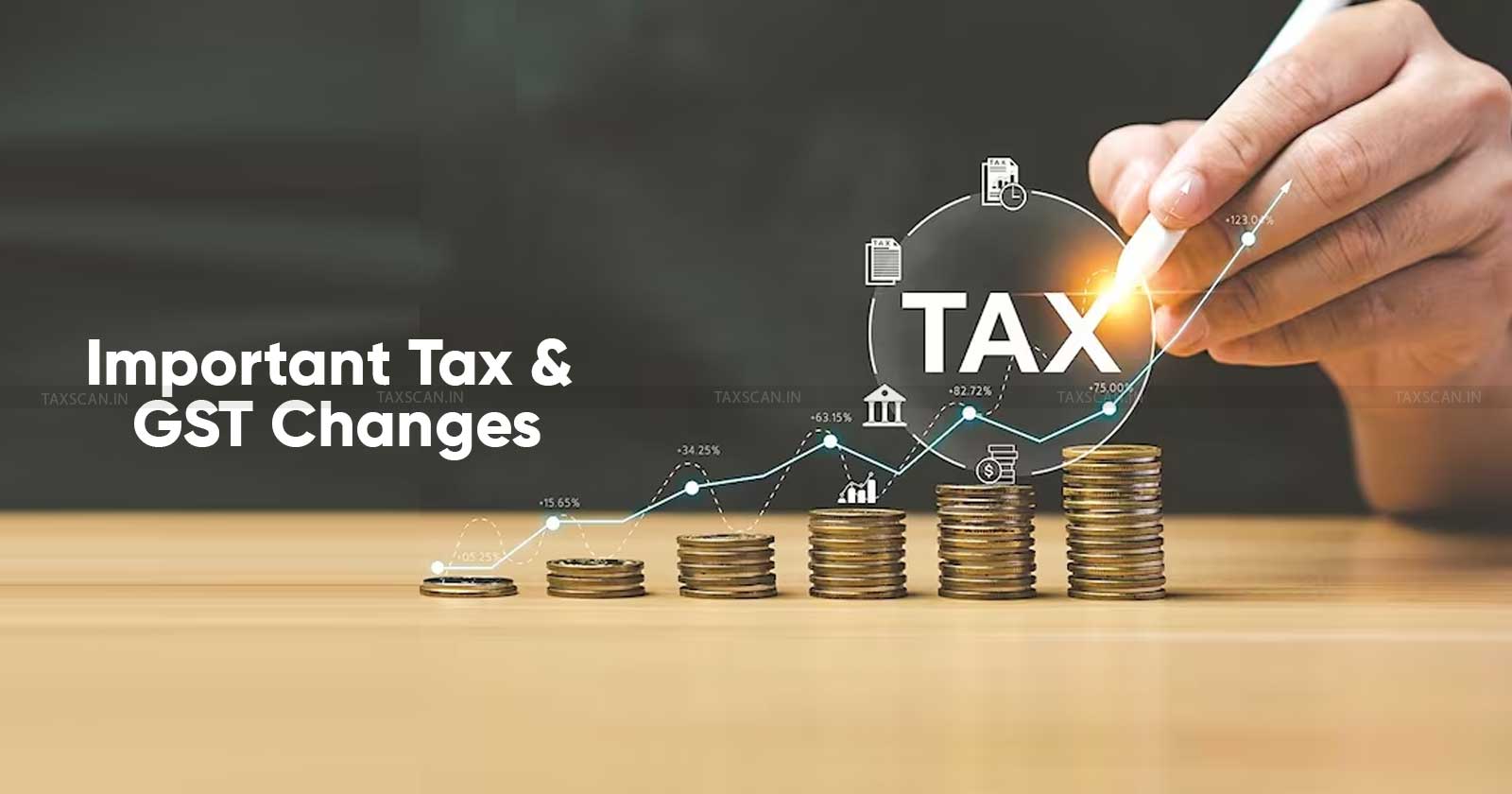Important Tax and GST Changes from 1st January, 2025
The New Year brings with it many changes to the tax regime and procedures. Read on to know all the changes effective immediately!

Out with the Old, In with the New! It has been quarter of a century since the beginning of the new millenia - one that has seen groundbreaking changes in tax and finance, tech, and fiscal policies. India has undergone a complete paradigm shift in terms of financial reforms, with the most significant change coming in the form of the Goods and Services Tax ( GST ) introduced in 2017.
India on the whole underwent a lot of changes in terms of governance, connectivity, global presence and financial policies and the changes have been duly reflected in the policy and infrastructural changes regarding tax and finance.
The Fiscal Responsibility and Budget Management (FRBM) Act was enacted in 2003 as a means to ensure fiscal discipline and reduce deficits. Banking reforms included the privatization and consolidation of public sector banks, along with the introduction of the Insolvency and Bankruptcy Code (IBC) in 2016, streamlining the resolution of non-performing assets.
The changes came accompanied by unexpected financial decisions as well. The sheer suddenness of the demonetization of high-value currency notes in 2016 targeted black money and aimed to promote digital payments and a formal economy.
The rise of digital payment systems, particularly the Unified Payments Interface (UPI), revolutionized financial transactions, making India a global leader in cashless payments.
Changes in Taxation
The digitalization of Direct Taxation processes has made the e-filing of returns and online payments much easier and faster. The introduction of faceless assessments in 2020 also eliminated in-person interactions to enhance transparency and reduce potential biases.
Indirect Taxation faced possibly the most revolutionary change in taxation with the introduction of GST in 2017. The GST regime sought to subsume all the fragmented tax statutes such as VAT, excise, and service tax under a common umbrella. Additionally, customs duties were rationalized and gradually reduced to encourage international trade, boosting India's relevance in the global market.
The introduction of Aadhaar, India’s biometric identification system, has significantly impacted taxation by improving transparency, reducing fraud, and enhancing compliance. Aadhaar streamlined processes like taxpayer identification, ensuring subsidies and tax benefits reached the intended beneficiaries. It eliminated duplicate and fake PAN cards by linking them to Aadhaar, simplifying tax filing and enabling smoother tracking of tax payments and refunds.
What’s different from 1st January, 2025?
A number of changes are to be set in motion from the first day of the new year, let us take a look at some of the most relevant ones.
TCS on Luxury Goods
A 1% Tax Collected at Source (TCS) will now be applicable on luxury goods if their cost exceeds ₹10 lakh. This addendum would bring high-value transactions under stricter scrutiny, ensuring greater accountability exercisable by buyers while undertaking such purchases
TCS Credit for Third-Party Payments
The Central Board of Direct Taxes (CBDT) will now permit individuals to claim TCS credit for taxes paid on behalf of others. For example, parents paying taxes on foreign travel or study abroad expenses of their minor children can claim this credit. This change shall provide greater flexibility to taxpayers and ensure fair allocation of tax credits, identifying the actual source of the income from where the taxable amounts are spent and providing them with the requisite benefits.
Multi-Factor Authentication in GST
Mandatory Multi-Factor Authentication (MFA) will be introduced for taxpayers with an Annual Aggregate Turnover exceeding ₹20 crore. MFA will be required for accessing essential GST functionalities, including generating E-Way Bills and E-Invoices. Multi-factor authentication has been extensively used by tech-providers such as Google to curb unauthorized access and to prevent data leak.
MFA is touted to strengthen the GST framework by preventing discrepant access to sensitive data, protecting the interests of individuals, businesses and the government alike.
Restricting Period for E-Way Bill Generation
The generation of E-Way Bills (EWB) will now be restricted to documents issued within 180 days. Documents dated earlier than 5th July 2024 will not be eligible for EWB generation from 1st January 2025. This update aims to improve the validation process for documents and prevent the misuse of outdated invoices.
EWB Extension Limited to 360 Days
The extension period for EWB validity has been capped at 360 days from the original generation date. For instance, an EWB generated on 1st January 2025 can only be extended up to 25th December 2025. This reform ensures timely movement of goods and prevents prolonged delays in transit, thereby improving logistical efficiency.
The year 2025 will definitely bring in a number of changes in terms of finance and tax. The upcoming Budget 2025 scheduled to be presented by Finance Minister Nirmala Sitharaman on the 1st of February is expected to touch on Personal Income Tax, Securities Transaction Tax and Tax Benefits for Senior Citizens among others.
Let 2025 bring in more health, more wealth and more progress for one and for all! Happy New Year!
Support our journalism by subscribing to Taxscan premium. Follow us on Telegram for quick updates


